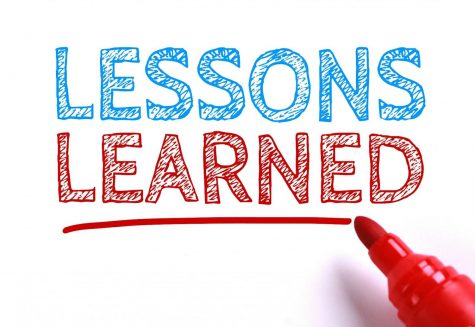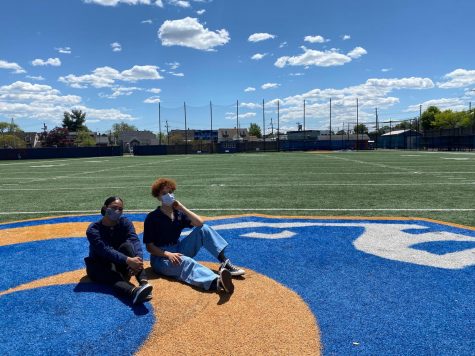Sleep is an Approachable Dream Zzz
Young, growing adolescents must get eight-to-ten hours of sleep a night! Don’t stay up too late, it’s not good for you! Lights out by 10 PM! These are just a few phrases that I am sure most of you have heard before. The real question is do we know why? Why is it that sleep is so important for us? Why does going to bed late cause poor sleep/less adequate sleep? Hopefully I can answer all of these questions for you and help you to create some healthier sleep habits, so that you can feel more refreshed and energized when you wake up from a night’s sleep.
First I’d like to bring the author Matthew Walker of the fantastic book: “Why We Sleep” into the mix. The author dives into this question and so much more. So, let’s jump right into it! Walker discusses the endeavors of the person who does not get an adequate amount of sleep and/or is sleep deprived and the statistics are mind-boggling. Research shows that if you are banking only seven hours of sleep or less, you are doing yourself and your body a disservice as grave as smoking and drinking in excess. Bizarre right! This is the scary truth though and Walkers goes onto explain in deep details as to why enough sleep is so important for us beings.
In a shortened answer, sleep is important for a few key reasons. Sleep is the time where our bodies and minds recharge. It also helps to maintain the body’s health and ward off disease. In conjunction, sleep is one of the main resources the brain needs to function; memory retention and learning are both processes that are negatively impacted in the brain when we get inadequate sleep. With that being said, the average person who gets six to seven hours of sleep a night and believes that to be a win, could be so under fueled and that this low-energy level has become their body’s accepted norm. When we get consistently inadequate sleep, our body will learn to adapt to the lower energy levels and function on low levels of exhaustion. In doing so, we are potentially not able to perform our best (sports/exercise), study/retain or learn at our highest potential, or even just be, in our everyday life with quality energy. Studies show that 50-70 million Americans have sleep issues or do not receive enough sleep, which is a majority of adults/adolescents. Now that you are probably all freaking out by now and stressing because this sounds like you, I would like to offer you some tips and habits that can turn around your sleep game and hopefully allow you to have a healthier relationship with slumber.
Tips and little habits that will go a long way:
1) Set a consistent bedtime and actually stick to it, at least on the weekdays. Our bodies are creatures of habit, meaning that we can easily adapt to and appreciate routine/structure within our day-to-day. So, an easy way to get better sleep is to go to bed at the same time every night, this way our bodies will begin to learn that this is when we are going to rest. I am not suggesting, by any means, to go from your normal bedtime of two A.M to setting a bedtime for ten-thirty. If this is your case, gradually set yourself up to go to bed a bit earlier by some time each night, until you adapt and can adjust the time to your goal/liking.
2) Be more mindful about your routine/what you do before hitting the hay. What does your routine look like pre-bedtime? Do you have one? Are you just scrolling through TikTok or the Gram? What we do right before bed can be one of the most effective things when it comes to our sleep, in the way we will sleep, how deep it will be, how easy it will be to fall asleep, and so on. If you are up right before bed, mind racing still checking socials or emails and doing things on screens, you are highly more likely to have poor sleep and trouble falling asleep. Even those who easily fall asleep after looking at screens before bed are negatively affecting their sleep while they are in it and we would never even know. So it is important to do something relaxing before bed.
3) Turn off the electronics and “unplug” one hour prior to bedtime. This is the biggest one for me! I cannot stand my fellow friends who are on their phones right before bedtime non-stop (you know who you are). Looking at screens stimulates brain activity and keeps the brain in a constant state of motion; so if we are practicing this right before bed, our brains have no time to wind down and slow down before we go to sleep. Also, screens emit blue light and restrains the production of melatonin, which is our body’s natural hormone that regulates our sleep cycle/circadian rhythm. When less melatonin is being produced, it makes it harder to fall and stay asleep. Therefore, putting those screens to rest and unplugging at least an hour before bed is crucial!
4) Adapt a night-time/pre-bed routine. This final tip is super special and important! creating a night-time routine for yourself can do wonders not only for your sleep, but for yourself as well. Doing something like a skincare routine, journaling, meditating, or even stretching/yoga before bed is linked to increased ability to fall asleep quicker. Also, having some type of routine in place primes our body to understand, “okay we are about to go to bed” because it will get used to knowing that right after this its time to catch some Zs! Remember having a routine doesn’t have to be some lengthy thing; it can simply be reading a few pages of a book before lights out.
I hope that these habits and tips have given you a bit of an ease when it comes to sleep. Hopefully this will aid you in catching some more Zs! If you are looking to learn more about sleep, I do recommend the Matthew Walker book and will link it down below! If you are interested in sleep podcasts, check out Get Sleepy on Apple podcasts or on Spotify. Happy sleeping!

Q: What expectations/goals do you have for this school year?
A: I expect to do a lot of the fun things you get to do in senior year, and my goals are...











